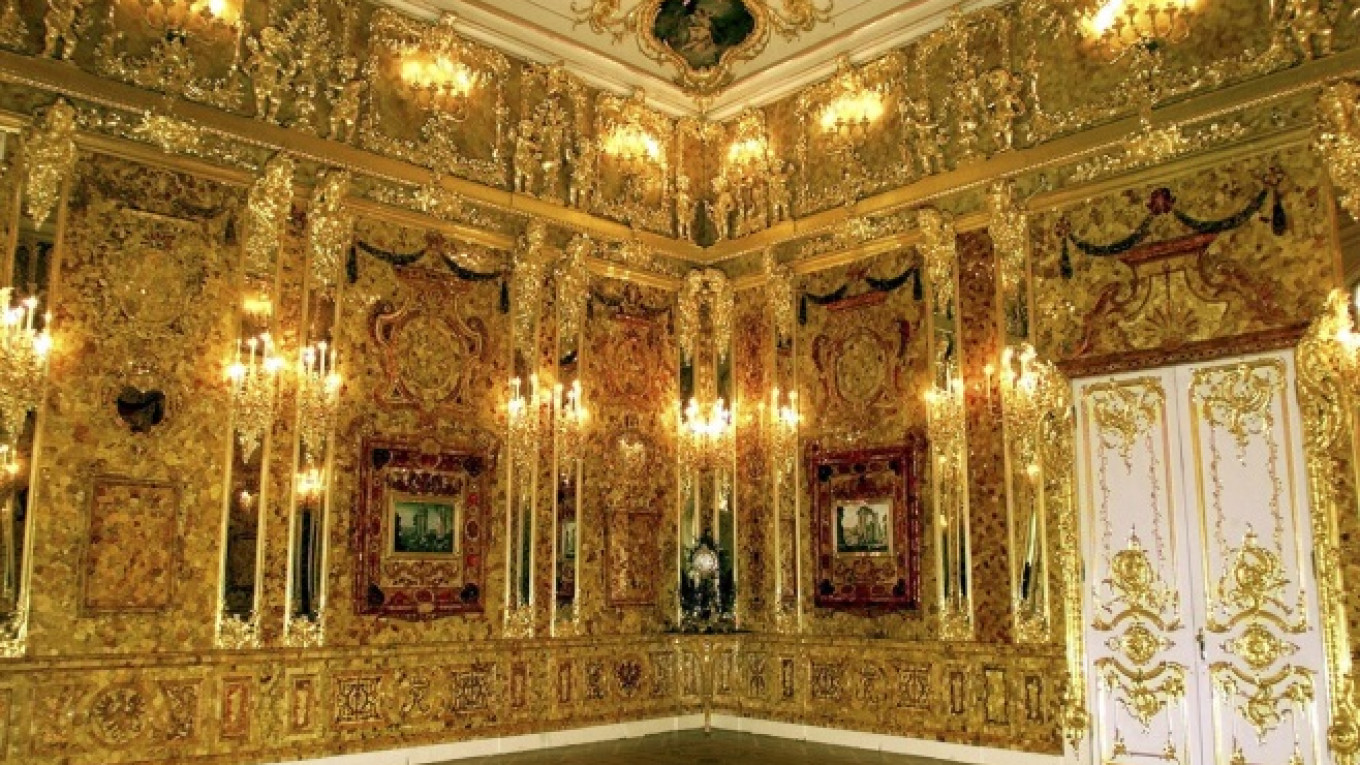BERLIN — A pensioner has started digging in Germany's western Ruhr region for the Amber Room, a priceless work of art looted by Nazis from the Soviet Union during World War II and missing for 70 years, but says he needs a new drill to help him.
Dubbed the Eighth Wonder of the World, the Amber Room was an ornate chamber made of amber panels given to Tsar Peter the Great by Prussia's Friedrich Wilhelm I in 1716.
German troops stole the treasure chamber from a palace near St. Petersburg in 1941 and took it to Koenigsberg, now the Russian enclave of Kaliningrad, before it disappeared.
Conspiracy theories abound about the whereabouts of what some say is the world's most valuable piece of lost art. Some historians think it was destroyed in the war, others say Germans smuggled it to safety.
Now 68-year-old pensioner Karl-Heinz Kleine says he thinks the chamber is hidden under the town of Wuppertal, in the state of North Rhine-Westphalia.
After analyzing the evidence, Kleine has concluded that Erich Koch, who was the Nazis' chief administrator in East Prussia, may have secretly dispatched it to his home town.
"Wuppertal has a large number of tunnels and bunkers which have not yet been searched for the Amber Room. We have started looking in possible hiding places here," Kleine said.
"But the search is very costly. We need helpers, special equipment and money," Kleine said, adding that a building firm that had lent him a drill had asked for it back.
"I only have a small pension, a new machine is too expensive for me. But whoever helps will get his share of the Amber Room when we find it," he said.
"I am optimistic. I just need the tools, then it could go quickly," he said.
Even Communist East Germany's loathed Stasi secret police tried and failed to find the Amber Room. Hobby treasure hunters have launched expensive searches for it across Germany, from lake bottoms to mines in the eastern Ore Mountains. But in vain.
Historians say Erich Koch, convicted of war crimes by a Polish court, amassed a hoard of looted art and had it transported west from Koenigsberg in the final months of the war as the Soviet forces drew closer.
Russian craftsmen, helped by German funds, have recreated a replica of the Amber Room at the Catherine Palace from where the original was stolen.
A Message from The Moscow Times:
Dear readers,
We are facing unprecedented challenges. Russia's Prosecutor General's Office has designated The Moscow Times as an "undesirable" organization, criminalizing our work and putting our staff at risk of prosecution. This follows our earlier unjust labeling as a "foreign agent."
These actions are direct attempts to silence independent journalism in Russia. The authorities claim our work "discredits the decisions of the Russian leadership." We see things differently: we strive to provide accurate, unbiased reporting on Russia.
We, the journalists of The Moscow Times, refuse to be silenced. But to continue our work, we need your help.
Your support, no matter how small, makes a world of difference. If you can, please support us monthly starting from just $2. It's quick to set up, and every contribution makes a significant impact.
By supporting The Moscow Times, you're defending open, independent journalism in the face of repression. Thank you for standing with us.
Remind me later.





